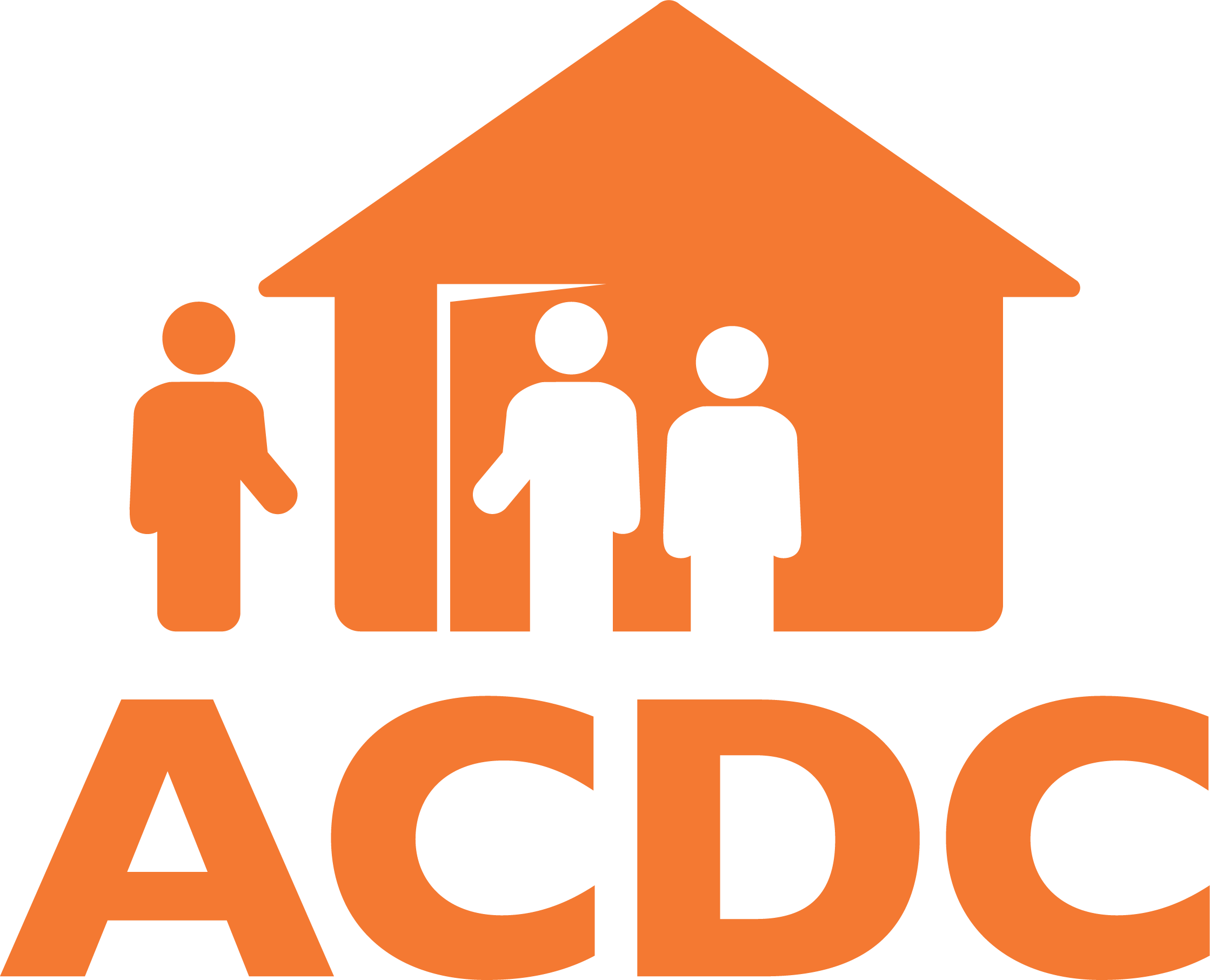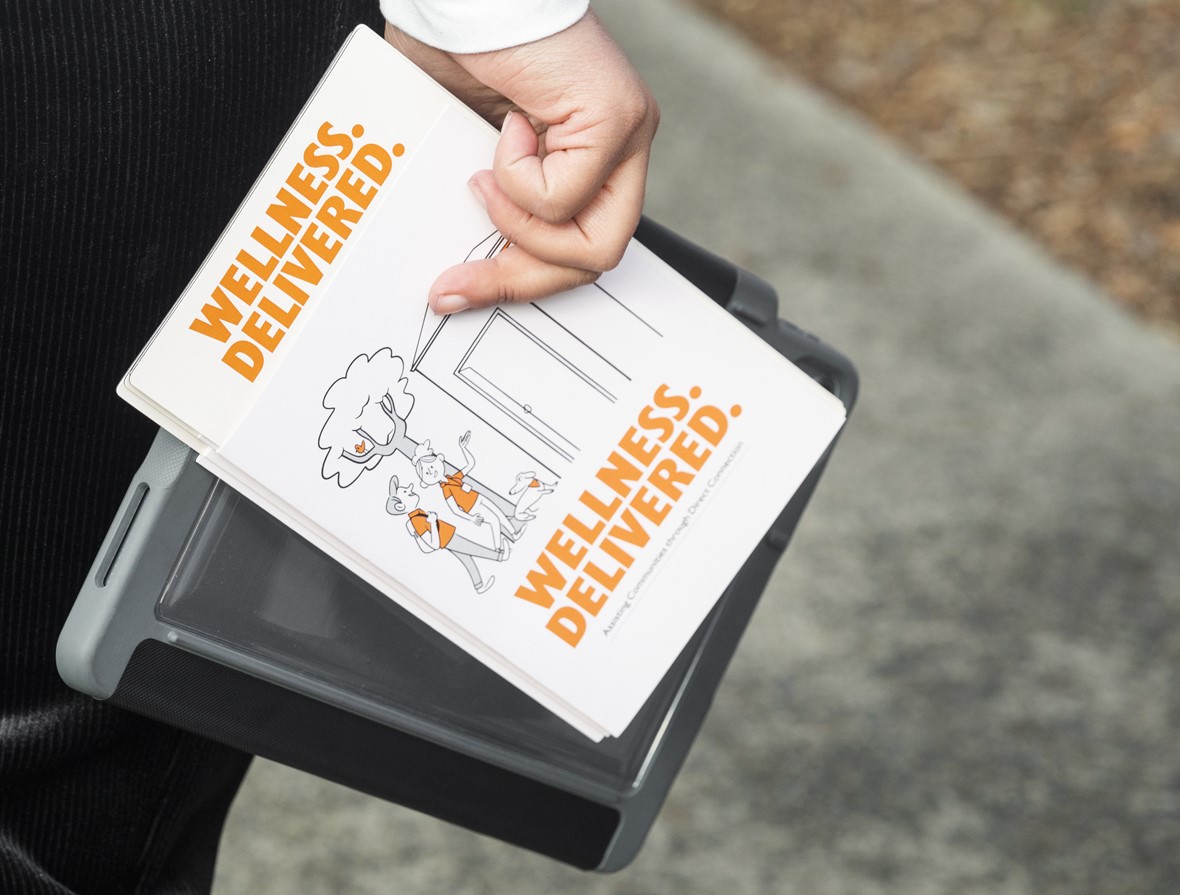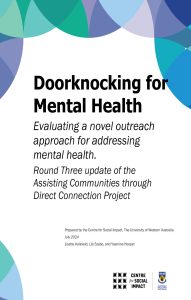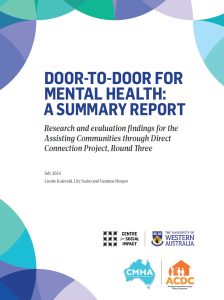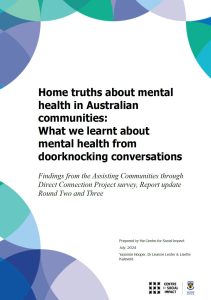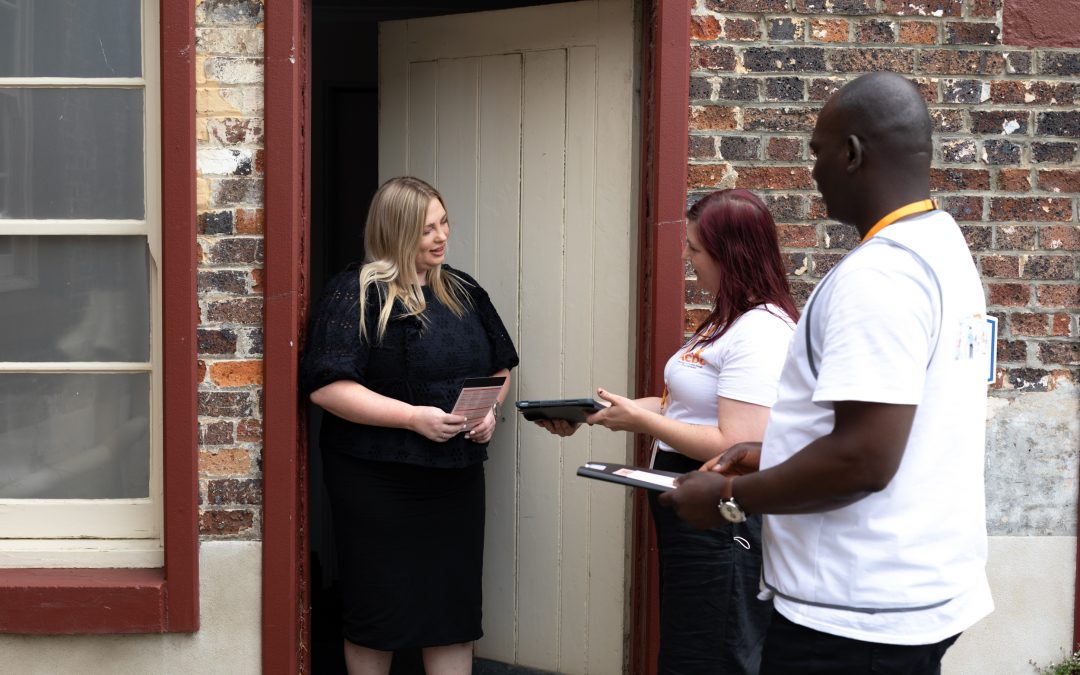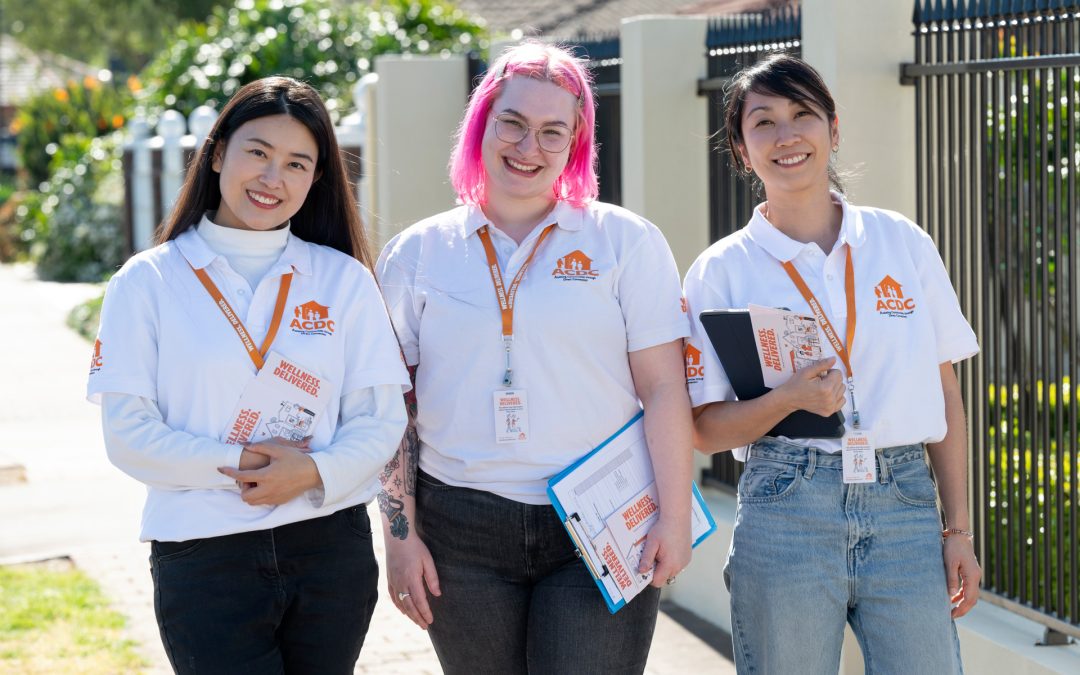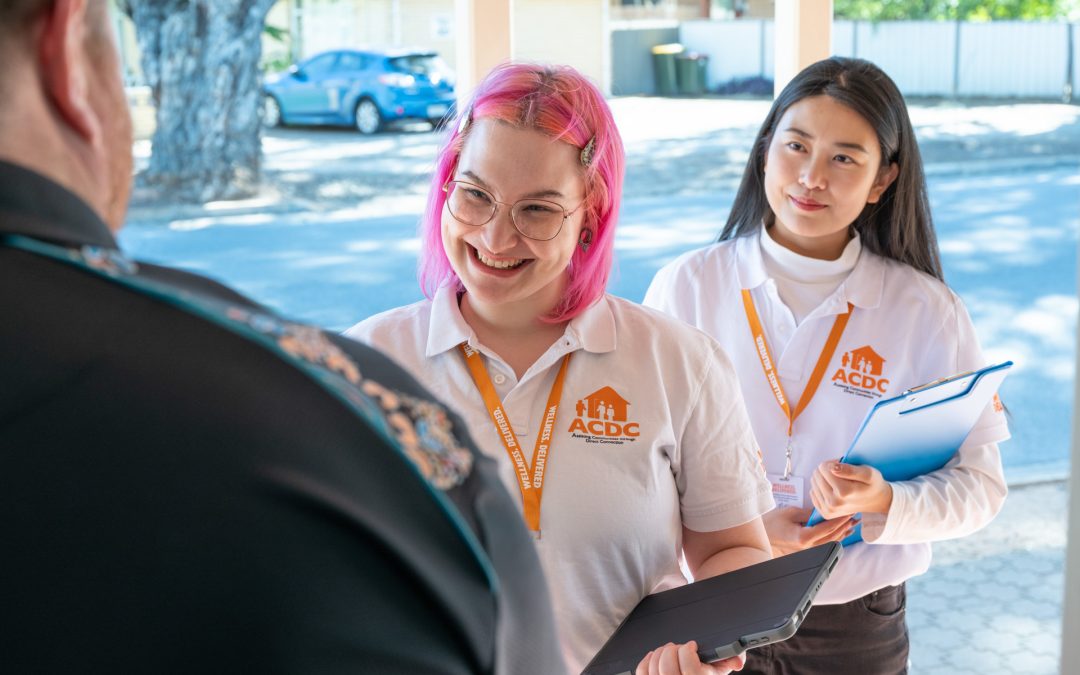The act of knocking on a door to check in on the household is not new. As a show of care, this has presumably worked to keep people well and connected to natural supports throughout history and across diverse cultures. The Assisting Communities through Direct Connection (ACDC) Project has turned this simple idea into a large-scale program adapted to the contemporary Australian context and implemented across diverse communities.
Between 2021 and 2024, teams of two, three or four people – referred to as ‘People Connectors’ – knocked on close to 52,600 doors in 27 communities around Australia to ask householders about their wellbeing. They had conversations about mental health and social and emotional wellbeing, collected data through a survey, discussed any needs that arose, and provided information and assistance by suggesting support options or linking people to services. In Round Three, People Connectors had more capacity to follow up on householders who asked for additional support. This involved People Connectors contacting services on their behalf, offering an extra visit, contacting them again through texting or phone calls, and providing additional information.
This summary report provides an overview of the Round Three survey responses and associated research findings.
Key findings
- Householders were responsive to informal conversations about mental health and welcomed the opportunity to receive information about supports and services.
- The one-off visit with (in some cases) short-term follow-up contact, resulted in tangible outcomes for many householders.
- Householders sought support for more immediate issues to help address their mental health and wellbeing.
- Addressing the more complex support needs of Householders in ‘high-risk’ circumstances was challenging, but through their dedicated efforts, People Connectors were able to provide assistance.
- The proactive outreach aspect of doorknocking was largely helpful, but particular cultural and social conditions challenged its effectiveness.
